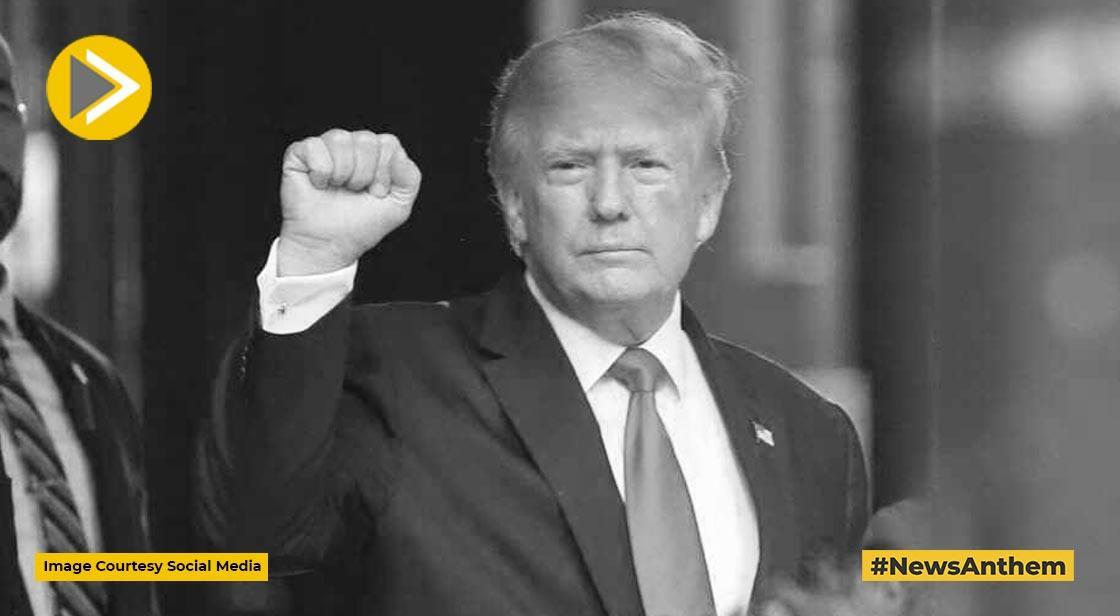Donald Trump's Executive Orders Banning Transgender Girls from Sports Clash with Global Standards

News Synopsis
U.S. President Donald Trump has issued an executive order banning transgender girls and women from competing in female sports at all levels, sparking a significant international controversy. The directive requires U.S. government agencies to enforce this ban under Trump's interpretation of Title IX, a federal law prohibiting sex discrimination in education.
Trump’s Stance on Transgender Athletes in the LA28 Olympics
Trump has further stated that transgender athletes will not be allowed to compete in the 2028 Los Angeles Olympics. He urged the International Olympic Committee (IOC) to "change everything to do with the Olympics and this absolutely ridiculous subject." This announcement has reignited discussions on the participation of transgender and DSD (Differences in Sexual Development) athletes in international sporting events.
Reaction from Global Sporting Authorities
While Trump's order has been welcomed by some of his supporters who argue that it restores fairness in women's sports, international sporting bodies have remained largely neutral. The IOC responded with a carefully worded statement emphasizing its commitment to working with sports federations and relevant authorities to address the issue.
The order is expected to create a complex legal and ethical dispute, particularly as various sports federations have adopted different policies on transgender participation. Some, like World Athletics and FINA (now known as World Aquatics), have implemented strict regulations, while others are still developing policies.
Confusion Between Transgender and DSD Athletes
One of the major concerns surrounding Trump’s order is the conflation of transgender athletes with DSD competitors. DSD athletes have naturally higher testosterone levels, which can provide a physiological advantage. This issue was at the center of recent controversies, including South African runner Caster Semenya’s legal battles over eligibility requirements in women’s sports.
Paris 2024 Olympics Controversy
The debate over gender and sports gained significant attention during the Paris 2024 Olympics. Two DSD female boxers, including Algerian Imane Khelif, won gold medals, stirring controversy. Trump referenced Khelif in his speech, calling her a "male boxer" and criticizing her victory over Italian fighter Angela Carini.
Khelif, who has always competed as a woman, was previously banned from the 2023 World Championships after a sex chromosome test deemed her ineligible. However, the IOC later cleared her to compete, stating that she was born a woman and had always competed in female categories.
The IOC’s Stance on Transgender Participation
The IOC has allowed transgender athletes to compete since 2004. New Zealand weightlifter Laurel Hubbard became the first openly transgender athlete to participate in the Olympics at Tokyo 2021. However, only a few transgender athletes have competed in the Games so far.
The presence of DSD athletes, on the other hand, has been more prevalent, with figures like Semenya sparking debates over eligibility criteria. Many sporting bodies require DSD athletes to reduce their testosterone levels to compete in women’s events, a policy that has led to years of legal disputes.
Potential Impact on the 2028 Los Angeles Olympics
Although the 2028 Los Angeles Olympics is privately funded and does not receive federal funding, Trump’s order could still have implications. The U.S. government, under his directive, may deny visas to transgender athletes seeking to compete.
According to the order, the U.S. Department of State and the Department of Homeland Security will "review and adjust policies permitting admission to the United States of males seeking to participate in women’s sports." An administration official stated that claims of transgender identity in sports would be reviewed for potential fraud.
Implications for the Future of Women’s Sports
Trump’s order is expected to be a key topic in the upcoming election of the new IOC president in March 2025. Candidates are divided on how to handle the issue, with some, like World Athletics chief Sebastian Coe, advocating for stricter policies to "protect women's sports," while others call for more scientific research before making definitive rulings.
Despite the ongoing debate, none of the IOC presidential candidates have proposed a complete ban on transgender athletes in the Olympics, making it clear that the controversy surrounding gender participation in sports is far from settled.









